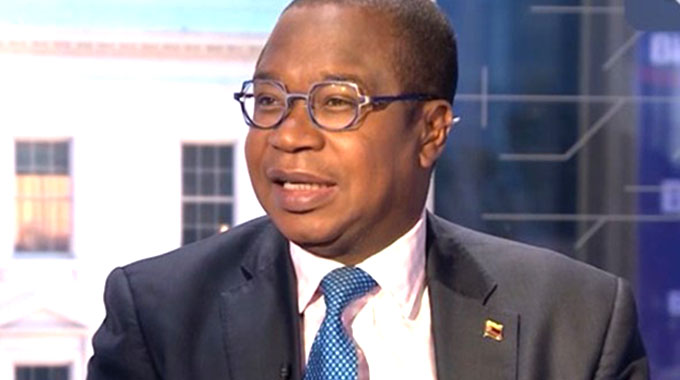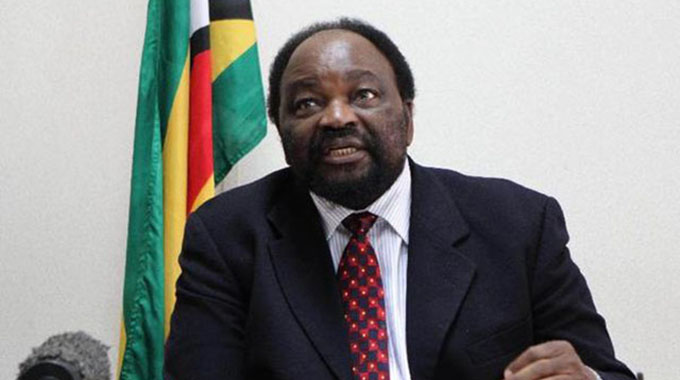A man of Big Issue ideas

Ranga Mataire
Writing Black
President Mnangagwa had another busy schedule last week.
The President undertook in projects that will leave lasting impressions and define his legacy as a proponent of the decolonising agenda in Africa.
First, the President assessed progress of Mbuya Nehanda’s statue at Nyati Gallery run by sculptor David Mutasa. The statue is to be permanently placed at the intersection of Samora Machel Avenue and Julius Nyerere Way.
Second, he led the groundbreaking ceremony at the 53-acre site where the Museum of African Liberation is to be built on the margins of a hill in Warren Park suburb, a stone throw away from the National Heroes Acre.
Both events were foundational and defining in that they form the praxis of his legacy, which is underpinned by his unrelenting pursuit of the African decolonising agenda.
Very few African countries have the mantle to undertake an initiative that directly challenges the current political order in which the West has a hegemonic power to define Africa.
For long we have been told that Africa is a continent afflicted by diseases, poverty, underdevelopment, no innovation and no definable history before the arrival of the white man.
In his own way, President Mnangagwa is seeking to unwrite such a narrative and affirm and re-assert Africa’s rich historical heritage particularly the people’s valiant struggles against colonial subjugation.
Witnessed by over 50 African Ambassadors in Harare, the site would be the first of its kind in Africa and will host four facilities: the monument of African liberation, the Museum, premises for conferencing and the amusement centre.
While other continents are replete with monuments that are symbol of their historical heritage including their struggles for nationhood, Africa has been slow in affirming its own rich social, cultural and political historical legacy.
In fact, most African countries are dominated by many symbols that reflect long colonialism and celebrate the same figures and characters directly involved in our dehumanisation as a people.
It is thus befitting that just as Zimbabwe led the way in correcting historical imbalances on land through its revolutionary land reform programme, the country is once again leading the way in constructing a museum dedicated to all fallen veterans of the continent’s liberation war.
In his dedication speech, President Mnangagwa said the time had come to dismantle one-sided Eurocentric narratives, which have been perpetuated in the public space for long.
“Zimbabwe dedicates this piece of land to the preservation of the rich liberation war heritage of our great African continent.
“The construction of this museum is not to trap us in our past, but (is) meant to ensure that we use our history to learn from the past and chart a better future for the next generation,” President Mnangagwa said.
Indeed, the construction of the Museum of African Liberation is an important infrastructural project set to go a long way in immortalising and preserving the resistance, acts of patriotism and sacrifices made by our founding fathers and liberation veterans.
The founding fathers’ determination to liberate Africa from the yoke of colonial bondage embolden present and future generations to achieve greater exploits.
In his own words which epitomise his resolve in Writing Back to Empire, the President said the time had come for us to deliberately and more consciously defend our interests as the people of Africa.
He urged African people never to give in to the cunning machinations of neo-colonial forces in whatever guise as doing so would be a betrayal of the founding fathers, men and women who paid the ultimate sacrifice for the unity, freedom, democracy and development being enjoyed today.
While the President’s defining mark of his reign is his quest for reformation of the State at all levels to spur economic recovery and development, he is a man conscious of his place in history and is not oblivious to the broader decolonising Africa agenda.
This the reason he gave nod to the Africa Fact Book, a project that was a precursor to the construction of the Museum of African Liberation.
Not only did the President give a nod to the Africa Fact Book project, his Government funded the whole initiative which has seen the documentation of African liberation stories from across the continent; told by actors and participants.
The projected shifted the pendulum as the African story is to be told from the vintage point of Africa by Africans.
What a time to be alive to witness the debunking of some tired tropes and myths about Africa through the compilation of an Africa Fact Book, the first of its kind on the continent?
Good and conscious citizens still exist among us. Among these are Professor Simbi Mubako and his team, who are marshalling the decolonising projects.
With his Institute of African Knowledge (Instak), Prof Mubako is determined to unwrite and unwind mental slavery by putting Africa and its people at the centre of the African story.
We applaud Prof Mubako for a compilation of the First Edition of the Africa Fact Book which was supported by the African Union and appropriately themed “Busting the Myths”.
We applaud President Mnangagwa for putting it bare that most of the information about Africa has been written and taught by non-Africans and these non-Africans wrote about African from their own prejudiced perspectives.
There is no doubt that as a Big Issue idea man, President Mnangagwa’s legacy in the annals of African history would be etched as that of a man who dared to make Africans change the way they view themselves, be proud of their history and never others define them.









Comments